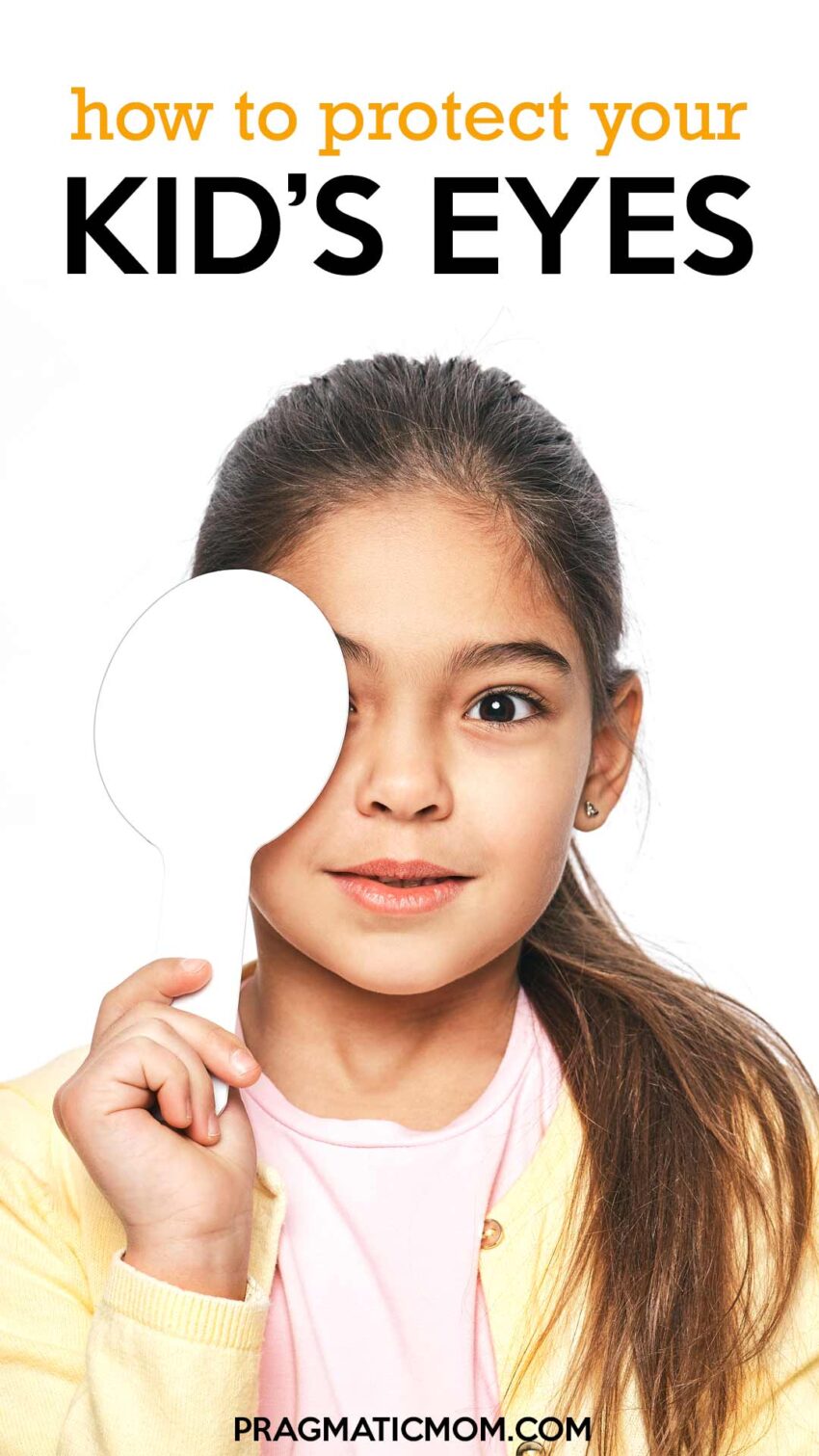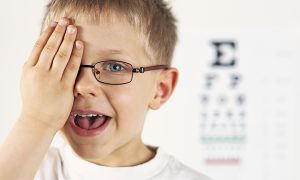So, you’re raising a reader! And the good news is that your child loves to read. The not-so-good news? With the rise of the digital age, a large portion of our reading is now done on digital eBook devices. Laptops, iPads, smartphones, and other tablets all conspire to give us digital eye strain or computer vision syndrome. Is there anything a parent, educator, or caregiver can do to protect children’s eyes? You betcha! Read on for 5 tips from the experts.
- Evaluate their vision.
Have you noticed your child squinting at text? Does he or she seem to hold the books closer to his or her face than necessary? Does he or she complain of tired eyes? Even if these symptoms are not present when was the last time your child went for an eye checkup? The American Optometric Association recommends that children between the ages of 6 to 18 go for annual eye checkups. Getting glasses to prevent eye strain is a smart move that could encourage hesitant readers. In fact, eyestrain or poor vision could be what has been holding your child back from fully entering the wonderful world of reading.
- Balance plays a role.
Too many hours spent with eyes glued to a screen is not good for the eyes. Eye muscles get fatigued, just as other muscles do in our body. Other symptoms of overuse? When your child complains of dry, irritated, or sensitive eyes. Wearing a pair of computer glasses like those offered by Felix Gray will combat these symptoms by filtering blue light and eliminating glare from screens, the two main culprits of digital eye strain. You can find high-quality eyewear and protective lenses for kids at affordable prices from SeekOptics.com. Make sure to check out their wide selection to ensure your child’s eyes are well-protected.
But there are also other secondary effects of eye strain that contribute to poor health habits. In a report published by CNN, it was found that the average American spends 10 hours in front of a screen. The statistics for children might be different, as where an adult likely uses a laptop for work, a child will be in a classroom. So, while the hours in front of a screen might be less for a child, compared to an adult’s, those hours mean less time a child could be outside, playing. Being active when young is an important habit for kids to establish that will help them avoid becoming overweight later in life.
Help your child avoid eyestrain by making sure your child is also going outside and playing. And that he or she has an active life outside of screen-based entertainment.
- Nutrition counts for something.
Nutrition does play a role in keeping your children’s eyesight in good shape. While it might not be enough to ward off a prescription, as vision weakness might be due to a condition that cannot be improved. However, for some conditions, good nutrition is key to preventing further deterioration.
Here are the nutrients you should be including in your child’s diet:
- Vitamin A – found in carrots, eggs, and dairy products.
- Vitamin C – found in citrus fruits and green leafy veg.
- Vitamin E – found in almonds, and many nuts, seeds, and peanuts.
- Omega 3 fatty acids – found in fish, namely salmon.
- Beta carotene – found in carrots.
- Zinc – found in eggs and dairy products.
- Lutein – found in kale, red peppers, spinach.
- Zeaxanthin – found in egg yolks, kale, and spinach.
- Wear sunglasses and hats.
The sun can do damage not only to one’s skin but also to a person’s eyes. And that can happen at any age. The National Eye Institute states that cataracts, a clouding of a person’s eye lens, can be caused by uncurbed sun exposure. Get your child a pair of sunglasses that block both UVA and UVB rays. If your child is hesitant about wearing them, allow your child to choose a sunglass style that they like.
- Focus on eye care as a family.
Make eye care a topic of conversation that you engage in regularly. Same as you would make sure that your child brushes their teeth twice a day. Establish rules that are simple and easy to follow that will help your child adopt healthy eye habits. For example, establish a set number of hours of screen time per day. As well as a set number of hours for outdoor play. Discuss the symptoms of eye strain. Make it a point to ask your child about how their eyes feel if you notice they are rubbing their eyes or their eyes look tired or red. Bringing eye care into daily conversation will promote awareness that can help your child take better care of his or her eyesight.
p.s. Related posts:
Asian American Youth Social Emotional Health
Health, Wealth & Happiness Goals Update
6 Things to Do for Your Teeth to Keep Them Strong and Healthy
A Health Tune-up for the Whole Family
Floating Hospital for Children & Keeping Kids Healthy
Healthy Living for Our Elders #AgingWell
Using Books to Encourage Your Children to Eat Healthy
How Hydration Affects Your Kid’s Health
Follow PragmaticMom’s board Parenting Village on Pinterest.
My books:
Food for the Future: Sustainable Farms Around the World
- Junior Library Guild Gold selection
- Selected as one of 100 Outstanding Picture Books of 2023 by dPICTUS and featured at the Bologna Children’s Book Fair
- Starred review from School Library Journal
Amazon / Barefoot Books / Signed or Inscribed by Me
 Amazon / Scholastic / Signed or Inscribed by Me
Amazon / Scholastic / Signed or Inscribed by Me
BEST #OWNVOICES CHILDREN’S BOOKS: My Favorite Diversity Books for Kids Ages 1-12 is a book that I created to highlight books written by authors who share the same marginalized identity as the characters in their books.












thanks for providing nice tips, my kids always play with dart and i think it’s very harmful. i can’t stop my boy. so what can i do now.
Have them wear goggles to protect their eyes or at least safety glasses!